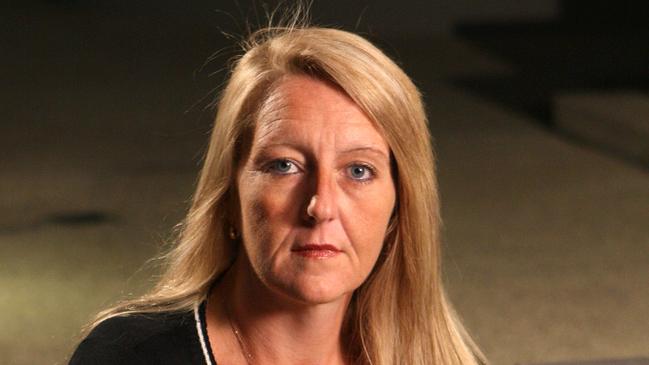Nicola Gobbo’s $1m payday ‘to protect secrets’
Police advised to pay controversial informer $1m bonus payment on top of seven-figure compo to settle dynamite damages claim from Lawyer X Nicola Gobbo

Victorian government lawyers were so desperate to defuse a lawsuit from Nicola Gobbo that they recommended a $1m taxpayer-funded bonus on top of a seven-figure settlement to avoid “exposure of sensitive information damaging to the criminal justice system”.
The extraordinary $1m payment is listed in confidential documents detailing frantic meetings between Victoria Police and the Victorian Government Solicitor’s Office in 2010 as both organisations moved swiftly to avoid court action by resolving Gobbo’s damages claim against then chief commissioner Simon Overland.
“The trial is likely to receive a great deal of publicity which could be damaging to Victoria Police and the administration of the criminal justice system,” VGSO acting assistant solicitor David Ryan wrote on July 28, 2010.
“This additional sum would represent the value given by Victoria Police on the benefits of avoiding a trial. These benefits would include avoiding … exposure of sensitive information damaging to the criminal justice system. In our view, an additional sum in the order of $1 million … would not be inappropriate to reflect the value of these additional benefits.”
Ultimately, Victoria Police paid Gobbo about $2.8m to settle the potentially damaging lawsuit. According to a Victoria Police spreadsheet of potential outcomes, if the case went to trial Gobbo’s damages could have reached $7.5m.
Secret documents released by the Lawyer X royal commission shed light on meetings through June, July and August 2010 as Victoria Police and the VGSO feared Gobbo’s lawsuit would reveal how police recruited her to inform on gang-war clients, including Tony Mokbel.
Gobbo launched her legal action against Mr Overland and former chief commissioner Christine Nixon on April 29, 2010, claiming a police decision to enlist her as a witness in the murder case against ex-police officer Paul Dale had destroyed her legal career and her health. Her secret role as a police informer was not mentioned in the legal action.
The report by counsel assisting the commissioner, Chris Winneke QC, highlighted Mr Ryan’s advice. “Mr Ryan highlighted that sensitive information could be exposed if the matter were to proceed to trial, including scrutiny of procedures adopted by Victoria Police in dealing with informers and the associated publicity which could be damaging to Victoria Police and the administration of the criminal justice system.
“(And) the fact that the Plaintiff had provided information to Victoria Police in matters other than the Dale prosecution and that she might still be providing information to Victoria Police.”
The royal commission released records of a gathering of senior police and government lawyers on June 3, 2010, in what it dubbed “the whiteboard meeting”. Police command’s most senior lawyer Findlay McRae attended, as did Mr Overland and other police officers.
“The matters outlined on the whiteboard include issues raised in the VGSO’s letter of 21 May 2010, including, for example, the option of disclosing Ms Gobbo’s status as an informer in the defence and obtaining a suppression order,” the royal commission’s report states.
“Apparent from the whiteboard was knowledge of Ms Gobbo’s registration from 2005, awareness of the many hours of recordings of conversations between Ms Gobbo and her handlers, which is a significant amount more than the 48 hours of recordings raised at Mr Dale’s committal hearing, clear concern about legal professional privilege, discovery, Ms Gobbo’s role in other investigations and review by the OPI.”
According to Mr Winneke’s report, Mr McRae said he was prepared to run the matter and “deal with whatever flowed from it”.
Police records confirm that on August 9, 2010, little more than three months after the lawsuit was lodged, then Labor police minister Bob Cameron was asked to approve the settlement.
Mr McRae had given Mr Cameron a confidential briefing note in advance. Mr Cameron signed the deal on August 11.



